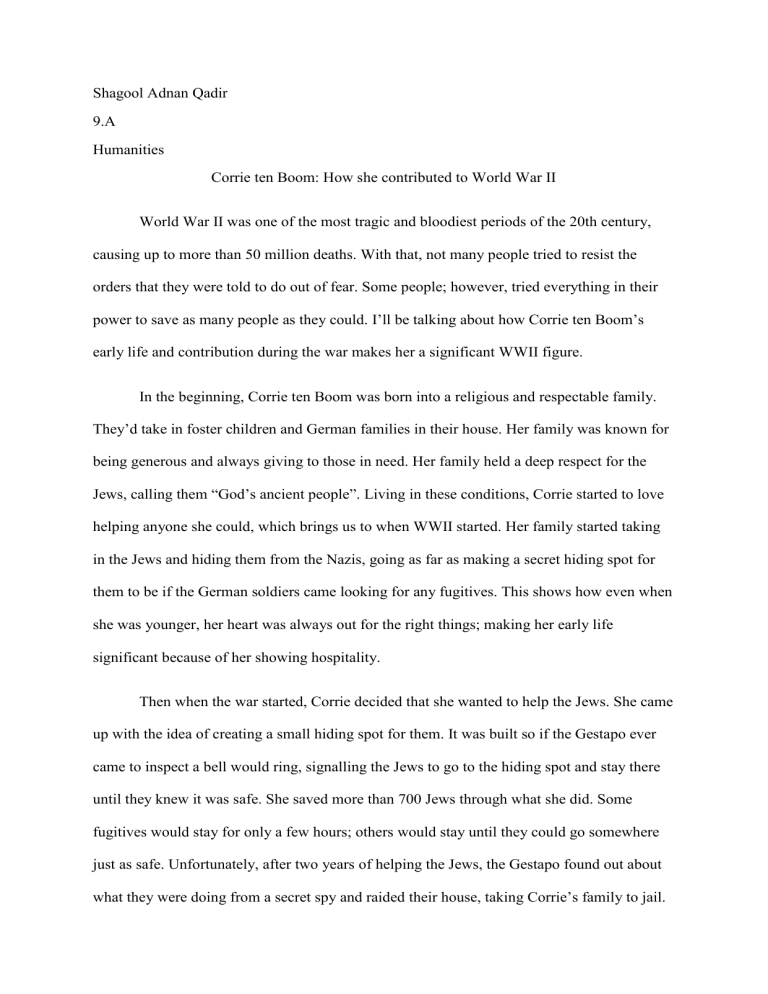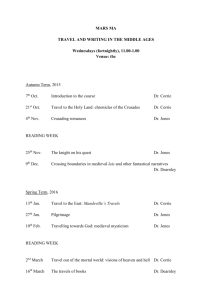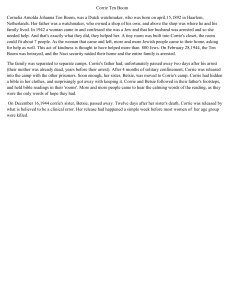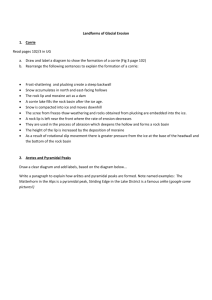
Shagool Adnan Qadir 9.A Humanities Corrie ten Boom: How she contributed to World War II World War II was one of the most tragic and bloodiest periods of the 20th century, causing up to more than 50 million deaths. With that, not many people tried to resist the orders that they were told to do out of fear. Some people; however, tried everything in their power to save as many people as they could. I’ll be talking about how Corrie ten Boom’s early life and contribution during the war makes her a significant WWII figure. In the beginning, Corrie ten Boom was born into a religious and respectable family. They’d take in foster children and German families in their house. Her family was known for being generous and always giving to those in need. Her family held a deep respect for the Jews, calling them “God’s ancient people”. Living in these conditions, Corrie started to love helping anyone she could, which brings us to when WWII started. Her family started taking in the Jews and hiding them from the Nazis, going as far as making a secret hiding spot for them to be if the German soldiers came looking for any fugitives. This shows how even when she was younger, her heart was always out for the right things; making her early life significant because of her showing hospitality. Then when the war started, Corrie decided that she wanted to help the Jews. She came up with the idea of creating a small hiding spot for them. It was built so if the Gestapo ever came to inspect a bell would ring, signalling the Jews to go to the hiding spot and stay there until they knew it was safe. She saved more than 700 Jews through what she did. Some fugitives would stay for only a few hours; others would stay until they could go somewhere just as safe. Unfortunately, after two years of helping the Jews, the Gestapo found out about what they were doing from a secret spy and raided their house, taking Corrie’s family to jail. She was always filled with generosity and kindness, showing how she’d help anyone as much as she could; making her contributions to WWII fairly significant. Finally, after Corrie was released from jail, she established a rehabilitation centre for refugees that were involved in the war. Later on in life, she wrote a best-selling book about her experience in the war called “The Hiding Spot”. It was also later turned into a movie. She was knighted by the Queen of Netherlands and was called a hero. Unfortunately, she suffered from a stroke that left her paralysed. The day she died was on her birthday, which usually in Jewish beliefs is that only special people get the privilege to die on the day they came to life. After her death, her house and workshop were made into a museum that showcased the rooms and the well-known “hiding spot”. This shows how that for all of her generous acts, her legacy never died off. She was an amazing woman that no one will forget. In conclusion, Corrie tried everything she could to save as many people as she could. From her early life fostering children to her hiding fugitives in her room, she will always be known for her generous acts. She was extremely significant to WWII because, without her, so many Jews would have died. She was a hero that everyone honours to this day, never letting her legacy die. Resources: Bio Staff, 2017, Keeping the Faith: Holocaust Hero Corrie ten Boom. https://www.biography.com/news/corrie-ten-boom-story-quotes A&E Television Networks, 2018, https://www.biography.com/people/corrie-ten-boom21358155 Corrie ten Boom (1892–1983) Survives a Nazi Death Camp http://www.captivefaith.org/cf/modern/ten-boom/ Patricia M. Ferreira, Corrie ten Boom, a Dutch saviour http://www.raoulwallenberg.net/saviors/others/corrie-ten-boom-dutch-savior/



